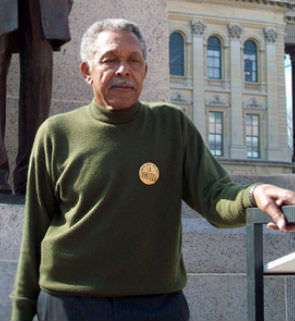Otis McDonald, Civil Rights Hero and Second Amendment Champion, 1933-2014

Otis McDonald, lead plaintiff in the landmark gun rights case McDonald v. Chicago (2010), died this weekend at the age of 80. As Brian Doherty noted yesterday in his obituary, McDonald was a South Side Chicago grandfather who wanted a handgun to protect his family from local hoodlums and fought all the way to the U.S. Supreme Court to vindicate his rights. Thanks to his victory, the Second Amendment now joins the First Amendment and other Bill of Rights guarantees in applying to both the federal government and to the states.
McDonald v. Chicago was a civil rights triumph in every sense of the term. At its heart, the case dealt with the original meaning of the 14th Amendment, the constitutional safeguard enacted in 1868 to wipe away the last traces of slavery, particularly the noxious "Black Codes" designed by the former Confederates to prevent the freedmen from owning property, moving freely, and keeping and bearing arms for self-defense.
The city of Chicago rejected that original meaning and declared instead that state and local governments should be free to restrict gun ownership as they saw fit. Yet as Alan Gura, the lawyer who represented Otis McDonald before the Supreme Court, told the justices during the March 2010 oral arguments:
In 1868, our nation made a promise to the McDonald family that they and their descendants would henceforth be American citizens, and with American citizenship came the guarantee enshrined in our Constitution that no State could make or enforce any law which shall abridge the privileges or immunities of American citizenship.
Otis McDonald forced the nation to keep its word, vanquishing Chicago's handgun ban in the process. "There was a wrong done a long time ago that dates back to slavery time," he told the Chicago Tribune in 2010. "I could feel the spirit of those people running through me as I sat in the Supreme Court." His win not only vindicated their spirit; it expanded the constitutional liberties of all Americans going forward. He was a civil rights hero who made his country a better place.
"He was absolutely among the nicest, most genuine and warmest of people," Alan Gura recalled of Otis McDonald. "We're fortunate to have had him in our lives and on the side of freedom."


Show Comments (29)